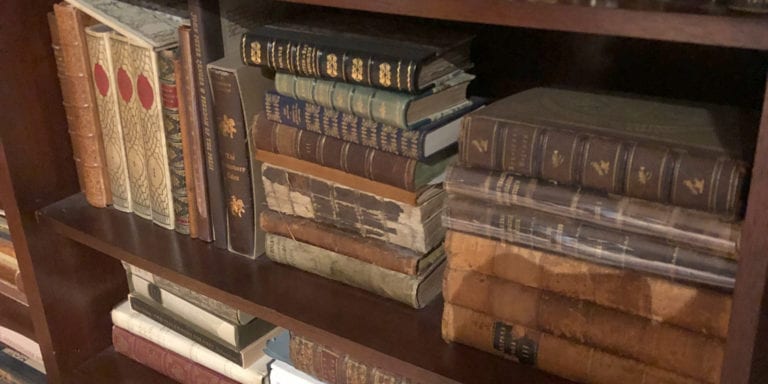
“They are acting up again,” the bookseller addressed Althea matter-of-factly as he approached the sales counter at the front of the old, old bookstore.
“They are?” she replied questioningly.
The bookseller was rubbing a spot on his head just behind his left temple.
“The books!” he spoke excitedly. “It’s the books! They’d been very quiet since we found Dera’s body crushed under a mountain of books in that old book barn in Connecticut.”
“Yes,” Althea spoke softly. “I believe her spirit is at peace now.”
“Well, at least she isn’t wreaking havoc here anymore,” the bookseller said optimistically. “But it’s the books! The books have begun falling again. It’s been years since I’ve found so many on the floor, and so many moved to the wrong places in the shop.”
“I have not noticed a significant increase,” Althea countered. “There are always a couple dropping somewhere in the store each day. I notice it especially right after I have turned the lights off after counting out my cash drawer at closing.”
“Yes, yes. That’s always been the pattern. It’s like the store becomes theirs; the store belongs to the books when we leave. The books often fall. Even during the daytime, I hear one drop every once in a while. But lately they’ve begun falling on me! I was passing through ‘Literature’ and this Paradise Lost dropped from above and hit me on the head! And it hurt, dammit!”
He held up a tall thin folio edition of Paradise Lost illustrated by Gustave Doré.
“After my surprise, I bent to pick it up from the floor. It was open to this page,” he continued.
The bookseller laid the book on the counter and turned it so Althea could read what his left forefinger was pointing at.
The words read:
Me miserable! which way shall I fly
Infinite wrauth and infinite despair?
Which way I fly is Hell; myself am Hell;
And, in the lowest deep, a lower deep
Still threatening to devour me opens wide,
To which the Hell I suffer seems a Heaven.
“You do not believe he is here do you?” Althea was startled. “I think things would be very grim if so.”
“No… NO! That would be…unfathomable. It’s just surprising, is all.”
“Do you believe they are singling you out?” Althea asked. “Do you believe we are haunted once again?”
“Well, there is always something going on here. But this is different. I’ve had three books fall on me this week! Three, I say!”
“Perhaps they are trying to get your attention,” Althea posited.
“Who are?”
“The books, of course.”
“Ok. They’ve got my attention. Now what?”
Althea closed the book. She slowly drew her hand over the front cover. The bookseller noted, not for the first time, how small and delicate her hands were. They were perfect.
“I wonder why this particular book fell on you?” Althea asked.
She pressed her forefinger against the gilded embossed image of Satan being escorted from heaven.
“This is Michael, is it not?” she continued. “He is removing Satan from heaven. He is so beautiful.”
“Lucifer was the most beautiful of God’s creations. The morning star. The son of the dawn. The Daystar. But he was prideful. He wanted too much.”
“Perhaps that is it. Pride? Wanting too much?” she pondered.
“Me? I’m not proud. And all I want is more books.”
“Admit it. You want all the books in the world.”
“Just the books that need a home…” he said a little sheepishly.
She drew her forefinger along the angels’ wings.
“Doré is a master. How could someone create such perfection from tiny scratches on sheets of metal?”
She opened the book and leafed through it.
“Look! He can depict a multitude of angels in a few square inches!”
She caressed the page lightly with the four fingers of her right hand. He heard her stamp her foot upon the floor.
“And here, he has given Satan bat’s wing after his Fall,” she continued. “I wish we could do something important like this!”
“I know. I wish there was magic within us,” the bookseller spoke resignedly. “Books and their authors and their illustrations—such synergy!”
There was a loud thump from somewhere out in the store. Both their heads turned toward it.
“Art?” Althea asked.
“Yes. I think so. The art section.”
Althea raced around the counter and headed out into the stacks. The bookseller was right behind her. When they got to the art section, they stopped and stood before a thick green-spined folio that lay open on the floor.
It was unmistakably William Blake. It was unmistakably Paradise Lost.
“Why?” he said.
“That is a problem we must puzzle out. Do you recall what other books struck you this week?”
From the front of the store, the silver bell which hung above the front door chimed brightly.
“A customer,” the bookseller said.
“Buying or selling?”
Althea paused and tilted her head back a bit as if in thought. She raised her forefinger into the air as if testing it.
“I think neither.”
Althea bent and picked up the Blake.
“We must put aside every book that falls. We can see if there is a pattern.”
At the front of the store, they found a tall thin woman standing at the counter. Her hand was poised above the bell that was always there. Customers could press the metal button, and the bell’s song would reach out into the store to summon help.
“Good morning,” the bookseller said.
“I was just about to ring the bell to see if anyone was here.”
“How may we help you?” Althea asked.
The woman turned and faced them.
“I have a book problem,” she said matter-of-factly.
Neither the bookseller nor Althea responded. They were dumbstruck. It was the woman’s eyes that transfixed them. One was azure blue. The other was emerald green.
“I said I have a book problem!”
“Ummm…perhaps we can help. Are you looking for a particular book?” the bookseller asked.
“No.”
“Do you have too many books and not enough room for them?” Althea asked.
“No.”
“Well, can you describe your book problem?” the bookseller followed.
The woman stayed silent.
“How may we help you then?” Althea continued.
“You will just have to come see,” the woman stated flatly.
It was hard to tell her age. She could be in her twenties or in her fifties. She had the type of face that was ageless. Perhaps she was much older. She had long dark hair that was parted in the middle and fell down below her shoulders. It wasn’t black. Nor was it gray.
“We don’t usually make house calls unless there are books for sale,” the bookseller stated.
“I believe we should go look at these books,” Althea countered.
“You may come by this evening after you close,” the woman said. “Here’s my address.”
She produced a business card from the folds of her billowy skirt and handed it to the bookseller. It read:
“Spirit Mitigation.”
There was no street address or phone number. In the bottom right-hand corner was printed:
Browne Knowe
Far Over,
East Underhill
“I’m afraid I don’t know where this is. Is it in Maryland?”
Althea leaned in and read the card. “I can find this.”
“It shouldn’t take you but seventeen minutes to get there from here. I shall expect you at 7:17.”
With that, the woman turned headed toward the door. When she pushed the door open, the silver bell above tinkled…a bit confusedly.
“What have we gotten ourselves in to?” the bookseller asked.
“I believe this may be quite an interesting house call, if not very profitable.”
“Now what about OUR book problem?”
“Are you unhappy being struck by your own books?”
“What do you think? You said ‘perhaps they are trying to get my attention.’ What did you mean by that?” the bookseller queried.
“You have told me of the books’ outbursts in the past. Those events seem to coincide with stress in the shop. Sometimes it has been good stresses. There are times they have reacted to unhappy events as well.”
“Well, I can’t think of anything good or bad that has happened recently. Certainly nothing to warrant me being smacked around.”
“I will start paying attention. And please show me any books that fall—especially the ones that fall ON you.”
The day wore on and passed uneventfully. Hundreds of books came into the shop. A few dozen sold…the usual ratio. The last customer left at 6:37. She had bought 3 different Edward Gorey. She complained a bit that the selling prices were substantially higher than the original publisher’s prices.
Althea had pointed out that the books were published over fifty years earlier and were first editions and were in pristine dust jackets and that she would likely raise the prices by double if they did not sell today.
“I was unaware we had these in stock. Sometimes the owner is not up to date on current valuations of books that are as desirable as these.”
The woman had responded: “Never mind. I’ll buy them. I just find Gorey to be so…I don’t know…quirky!”
“Quirky…” Althea replied. “I think that is apt in many ways. Would you like a bag? We have to charge you five cents now. County law. I can give you free bookmarks if you wish. Those have not yet been assessed as needing to be taxed.”
The woman picked up the books—bagless—and headed out the front door.
The silver bell above tolled a solemn “It’s closing time.”
That is if a small silver bell can “toll.”
Well, it can. If you have read many of these stories, you are aware it has certain properties that other bells do not.
Be they silver or of baser metals.
The bookseller had left earlier to run some errands and make a deposit at the bank. Actually, it was two deposits. The amounts were so small from the previous two days it was hardly worth taking them in. It was Wednesday. He and Althea had bought so many books on Monday there was only $57. 31 in cash over the starting amount. Tuesday was not much better. $77.89.
When he complained about the store’s monetary losses as he was departing, Althea had commented: “Do we buy too many books?”
“One can never buy too many books,” had been the bookseller’s response.
“Then do you feel we are paying too much?”
“We aren’t paying much for any of the books unless they are really good. If we paid less, they’d almost be donations.”
“Then what is the solution?”
“Well, we need to push Tim to complete the expansion. Then we will have more room for more books.”
“What will happen when that is full?”
“We can cross that bridge when we come to it.”
It was close to 7 when he pulled back into the store’s parking lot. He backed the van to the front porch and went in. The bell chimed a bit surprisedly.
“Oh, you’re back?” it seemed to ring.
“I’m back,” he told Althea. “I’ll get some empties in case we buy anything on this mysterious house call you’ve gotten us into.”
“I do not believe we will need boxes.”
“I’ve always said ‘You can never have too many boxes on a house call.'”
“Yes. So you have told me. Many, many times. I believe we are just going to find out what that woman’s ‘book problem’ is.”
“Ok. I’ll just get a dozen empties then.”
They both climbed into the van. The bookseller started the engine and put the vehicle in gear.
“Sooooo, where are we going? I don’t even know what town she lives in from the address on her business card.”
“Oh, it is in no town.”
“Then where exactly are we going?”
“It is not ‘exactly’ anywhere. Start by heading east.” Althea pointed her finger eastward as they got to the exit of the parking lot.
She gave him further directions as the trip proceeded. Soon they were in the hilly area of the county not far from the big muddy winding Potomac River. Here there were not many homes or even farms. The landscape was too steep. The roads wound along narrow ridges. On one side the land rose steeply upward. On the other it dropped down—often into dark misty wooded hollows.
“So, the address said East Underhill. I couldn’t find an ‘Underhill’ in Maryland at all when I searched online,” the bookseller stated flatly.
“East Underhill is more of a ‘place’ than a town. However, I am not surprised you have never been there. Even though you have been buying books in this county for many, many, many years. Many. It is not a place that reveals itself very often.”
“Three ‘many’s’ is more than enough to describe my years on this planet, thank you very much. Tell me when I should turn.”
“I actually said the word ‘many’ four times.” Then she continued: “We will follow this winding path for a few more miles. Then we will make a sharp left up the hill with the creek bed far below to our right. When we are over the hill, we will need to look sharp for the turnoff for Browne Knowe. Browne Knowe is the name of her house.”
“She seems to know you; or at least know of you.”
“I think we know some of the same folk. Though we have never met, we share some of the same background.”
“I couldn’t tell how old she was. She seemed much older than you to have mutual friends.”
“Friends? No, not friends. Not foes either. And, yes, she is very old. Even older than I.”
“Just how…”
The bookseller’s question was interrupted when Althea spoke sharply:
“You just passed it! You will just have to stop and back up. There is no place to turn around along this road for many miles. The left side ascends steeply. The right side descends.”
The bookseller stopped the van and began backing, gingerly, along the narrow road. Althea was trying to be helpful with frequent instructions like:
“A little left.”
“A little right.”
“You are QUITE close to the edge!”
Then: “Stop. We turn in here.”
“Where?” the bookseller asked. To his left it appeared to be a solid wall of leafiness. To his right the woods dropped off sharply to a barely visible winding creek in a dark hollow far below. But when he looked closer, he saw there was a driveway of sorts. It was more like wagon trail—two dirt ruts with high grass between them and on either side. From the canopy of trees above, wild grape vines hung down to about 4 feet off the ground. “I’m supposed to drive the van through there?”
“I could get out and prune some if you are concerned,” Althea spoke a little dubiously. “But I believe you can push through the grape vines like they were a beaded curtain.”
The bookseller turned the steering wheel and, indeed, the van easily passed through hanging vines.
The path forward was pretty smooth if a bit…rustic.
“How did you know to turn there? I didn’t see a mail box or a street number,” the bookseller asked.
“She would have no need for a mailbox, I believe. Her estate is unnumbered.”
“Well, how would she get electric bills and tax notices? I’m sure the state wants a little something from her.”
“I think she is—how do you say it—off the grid?” Althea answered.
“Then how did you know the drive was even there?”
“I…I just… We are here. Stop next to these steps.”
The van stopped next to the bottom step of a winding stone staircase. They ascended into a cluster of trees and disappeared. They were made of native limestone. The forest and hillsides were littered boulders and outcroppings.
They stood at the bottom step and looked upwards.
“Is there a house up there?” the bookseller asked rhetorically.
“If there was no house, these steps would lead to nowhere.”
“Maybe it’s a stairway to heaven.”
The bookseller’s chuckle was stifled when she said: “That just does not make sense.”
“Well, lets see where the stairway leads.”
Althea counted 457 steps until they entered a little grove. There was an old crooked clapboard house above them. It had long ago lost its color. The wood was bare and worn. But the house—though it leaned west a bit—seemed to be in good shape. It was sort of Victorian. There was a front porch with ornately turned posts, rails and spindles. The gables were supported by seventeen carved corbels. Each was a human figure with a different grotesque face.
“Why couldn’t we have parked closer? Where does she keep her car?”
“Car? Why would she want a car? We parked as close as we could. The steps are the only way up here,” Althea replied.
They stepped up the 7 porch steps. Each creaked with a different tone.
“F-sharp dominant seventh,” Althea spoke matter-of-factly.
“What?!”
“F-sharp. A-sharp. C-sharp. E. Then another F-sharp, A-sharp and C-sharp. The steps are a chord.”
“What?!”
Before Althea could answer, the front door opened, and the woman appeared.
“I heard you on the steps. Please come in.”
They followed into a foyer which was rich in polished wood and red velvet furnishings.
“The books are in here.”
They followed her into a room off to the right. It was a library.
“Beautiful!” the bookseller said exhaling profoundly. “It’s quite a walk getting up here. How did you ever manage to get these books all this way?”
“Oh my, they have been here forever,” the woman replied.
The bookseller was quite an impolite guest whenever he visited a home with books in it. He immediately walked to the nearest bookcase, leaned forward and began reading titles silently.
Althea spoke up: “We have come about your book problem.”
“Yes. Yes,” the woman said. “It all started 19 days ago.”
“What happened?” the bookseller asked.
“Well, just look at my books!”
“They look wonderful! It’s a beautiful collection. Which are you considering selling?” he continued.
“Selling? None of my books are for sale!”
Althea stepped forward and lifted a lovely old folio off a stack atop a marble topped library table. She cradled its spine carefully in her right hand and let gravity open it to about a 37 degree angle. She gently turned a few pages with her left hand.
“Why, the pages…the pages are blank. Is this a defective copy? Unprinted? Why would a binder bind blank sheets? This binding is 201 years old.”
“Yes. Blank!” the woman uttered. “All my books have gone blank! The words have all disappeared.”
The bookseller stepped to a bookcase and slipped off a sumptuously bound quarto. He opened it.
“It’s blank!”
“They are all blank. All my beautiful books have gone blank! THAT is my book problem!” the woman’s chest began heaving convulsively. Althea stepped forward and lifted her arm up to the woman’s shoulder in order to comfort her.
“I’ve never seen…” the bookseller started.
“No one has ever seen such thing,” Althea interrupted. “What happened 19 days ago?”
“There had been a dreadful storm that night. I couldn’t sleep. I came down in the dark to find some Keats to read. I pulled down a Palgrave bound by Riviere and when I opened there were no words anywhere in it!” the woman sobbed.
Althea spoke: “Your business card reads ‘Spirit Mitigation.’ What exactly does that mean?”
“Why, Althea, you know very well that some folk need a service like that from time to time. I will help someone in need and, if necessary, remove the problem.”
“You what?!” the bookseller blurted.
“What do you do if you need to remove a spirit?” Althea continued.
“Why if I can’t just shake it loose and make it go away, I will take it and store it here.”
“Where?” the bookseller asked looking around apprehensively.
“Well, here and there.” The woman gestured randomly about the room with her hand.
“All your books are now blank?” the bookseller asked still a bit behind the progress of the conversation between the other two.
“Every one I’ve opened.”
The bookseller continued removing books from the bookcases randomly and opening them. It was as if he was searching for a printed word—somewhere—anywhere.
Althea stepped into the center of the room and became motionless. She seemed to orient herself and then stood erect and faced south. After a minute or so, she made a quarter turn east. She stood motionless facing east. She then turned north. Then west. She then turned back and faced north. After a few moments, spoke aloud but to no one in particular.
“There is something in this direction.”
“There’s what?” the bookseller asked.
“What is it, Althea?” the woman asked.
“It is in this direction.” Althea turned and headed toward the front door. The bookseller and the woman followed her.
Althea fairly danced down the steps producing a lovely trilling chord. The bookseller and the woman followed a bit discordantly. When Althea got to the ground, she turned and headed around the side of the house and up the slope toward the back. When the bookseller and the woman caught up, they found Althea in the middle of the back yard, if one could call the rocky slope a yard. She was standing before an old dead tree. The tree had dozens of bottles sticking out from its trunk.
They stepped forward, and each stood at one of Althea’s shoulders.
“What on earth…” the bookseller spoke a little awestruck.
“Why, it is a bottle tree*,” Althea said flatly as if it was as plain as the nose on the bookseller’s face.
“A bottle…”
“Yes.” The woman added: “It comes in quite handy in certain circumstances. Certain…things…can easily be contained and stored in these bottles.”
Althea then stepped forward to reach a hand to touch the tree. She slowly walked around it clockwise. Then she turned and slowly walked around it counterclockwise.
She stamped her foot petulantly upon the flat stone she stood upon.
“Why, there is your book problem!” She raised her hand and pointed upward with her forefinger. “Right up there at the very top. One of the bottles has broken, and it has escaped!”
“Escaped? What’s escaped!” the bookseller said looking around.
“Why, the Book Eraser, of course.”
“How on earth could I have missed that!?” the woman wondered aloud.
“You were distracted. All you had on your mind, all you could think of were your beautiful books and all the wondrous words that were lost.”
“Well, I never!” the woman exclaimed then continued: “This should be quite simple to rectify. All I need is a bottle. I have some Old Raj gin inside. I happen to know the bottle has only three shots left in it. Would you help me empty it?”
“I am afraid I do not touch ardent spirits, but I know he will certainly assist you.” Althea gestured toward the bookseller standing before the bottle tree looking up at it with his mouth agape. “But I would join you with a small glass of white wine if you have any.”
“I have a lovely French Sauvignon Blanc. I believe you like wine crisp and dry, Althea.”
The three of them walked around to the front. They stepped up on each porch step in unison. The chord spoke like a creaky organ as they trod upward.
In the foyer, the woman said: “Please seat yourself in the parlor.”
The bookseller sat next to Althea on a red velvet fainting couch.
“A bottle tree…” he mumbled to himself.
“Perhaps you should make one behind the bookshop.”
“Why would I?”
“You certainly empty enough bottles.”
The woman returned carrying a silver tray with two bottles and three glasses upon it. She set the tray upon an Ottoman. She poured Althea’s white wine first. Then she poured a shot and a half over the ice cubes in each of the tumblers emptying the gin bottle. The color of the gin was very close to the color of the wine. Straw colored.
“It is infused with saffron flowers from Galicia,” Althea whispered as if reading the question in his mind.
The woman handed them their glasses and then raised her glass.
“Here’s to spirits! Be they ardent or blithe or neither!” she toasted.
“Cheers!” the bookseller echoed.
“Sláinte,” Althea intoned.
After he took a sip, the bookseller choked a bit and said: “Jet fuel! But it is delicious.”
“It is my favorite. I’m afraid gin is my tipple.”
“Gin is the drink of many great writers,” the bookseller said. “I’m afraid I never asked your name.”
The gin was warming him and loosening his demeanor.
“Barbara.” Althea whispered in his ear.
A tingle rose the length of the bookseller’s spine.
The bookseller’s eyes misted over. A tear rolled down his cheek. It was indeed Barbara. He hadn’t recognized her for she was far different than the Barbara he had been such friends with long ago. He forced composure on himself and made believe that everything made sense.
“Yes. I am Barbara. Always have been. Always will be,” she chirruped.
And so they sat and sipped and chatted as if they weren’t surrounded by hundreds or perhaps thousands of spirits…all of which were…”mitigated”…save one apparently.
When they had each finished, Barbara said: “I think I will be able to catch this one pretty easily. I know exactly who it is. But I can’t get up that high. Would you help me with a ladder before you go?”
“Certainly,” they both replied in unison.
They left the hours and returned to the slope behind it. They leaned a ladder against the bottle tree, and Althea deftly ascended. She slid the broken bottle off its nail and slipped the Old Raj over the nail in its place. She descended, and the bookseller pulled the ladder away from the tree. Barbara stepped to the north side of the tree and clapped her hands together three times. The bottle rattled a bit and then was still.
“Let’s see if it worked,” Althea said excitedly.
They hurried to the front of the house and ran up the porch steps one after the other creating a bit of a melody. Inside they turned into the library. Barbara lifted a 17th century Dante from a sideboard and gently peaked inside.
“They are back! All my precious words are back! How COULD I have been so blind!”
The bookseller had stepped to a bookcase and was looking lovingly at all the polished leather spines. He slid off one after another and gently opened eleven of them. Or perhaps it was thirteen.
“Are you sure you don’t want to sell…”
“We should be going,” Althea interrupted. “It is getting late. The moon is going down. I do not wish to descend 457 steps in darkness.”
“I can’t thank you enough!” Barbara said. “Just wait here a moment.”
She left the room, and when she returned, she had a small flat shaped object wrapped in…red velvet. The room seemed to be all leather and wood and red velvet.
She handed it to the bookseller.
“This for you.”
“Me? I didn’t do anything. Althea diagnosed your problem.”
“Althea already has one!” Barbara chuckled.
She led them out to the porch.
“Please come back. Browne Knowe is often here. If it is here, then I am at home as well! You can look at my library. It is always changing.”
“And we can talk about books,” Althea added.
“And drink gin,” the bookseller said brightly.
“And Sauvignon Blanc if you have any.”
“I will always have some on hand from this day forward,” Barbara vowed.
The full moon was just touching the treeline when Althea and the bookseller started down the stone stairway.
Out in the woods below, an animal wailed like a mournful banshee.
“What’s that?” the bookseller asked.
“It is a screech owl**.”
“I thought they screeched.”
“They have several calls. Some say this is a ‘whinny.’ Sometimes it is not as sad and painful as this one’s song tonight. I wonder what is wrong with her?”
It was nearly dark when they got down to the van. The bookseller turned the van around and headed out the rutted path. The headlights were the only illumination out there. Every once in a while something seemed to dash into the lights. You couldn’t focus on it, and it quickly disappeared into the night. Whatever it was seemed to be guiding them but also ensuring their departure. When they got to road, such as it was, the bookseller turned right and headed toward the distant lights of the city.
Althea had been quiet, but after a while, she asked: “Why did you not remarry after Priscilla crossed to the other side?”
The bookseller squeezed the steering wheel tightly. The question came from…nowhere. It shocked his system. He didn’t speak for several minutes as the book van wound its way along the mountain’s edge.
“I…just…no one…I could…ever…I don’t want to talk about it,” and then he went silent.
Neither spoke the rest of the way back.
Althea sat in the passenger seat, her hands folded primly in her lap.
There were no directions needed for the way back. The bookseller simply drove toward the lights of the city.
When the van turned into the bookstore’s parking lot, everything was in darkness. The “streetlight” atop the pole in the parking lot was out. The front porch light which always burned was dark. The few lights which stayed on inside the store for security were also out.
“That’s odd,” the bookseller thought aloud.
He pulled to the porch steps and left the headlights on—shining on the front door. They both exited and headed across the porch. A piercing painful wail stopped them in their tracks.
“Someone’s hurt out there somewhere,” the bookseller fretted.
“No. That is another owl. I have never heard one with such human qualities.”
The wailing continued with brief pauses in between shrieks. The sound was very close but seemed to move swiftly from here to there and there to here.
They both stepped to the front door and leaned closely in toward it to put their key in to unlock it only to discover. There was already a key protruding from the lock! They turned toward each other in surprise. Their faces were so close that—somehow—their lips brushed against each other—barely, briefly. The surprise sent them both back a step.
“Should we…”
“We should go in.” Althea asserted.
“I’ll go f…”
“Do not be ridiculous.”
She turned the key and pulled the front door open. The little bell rang frightfully and then went silent. The van’s headlights shone though the open door and shadows were cast wildly everywhere.
From the back of the store came another piercing wail.
“Owl?” the bookseller said hopefully.
“No.” Althea said. “Not inside.” She headed back through the European history aisle.
The bookseller reached behind and under the counter and found the flashlight that he kept there. He was a bit surprised the batteries were not dead. He dashed back around the front and hurried to catch up to Althea who was rushing into the darkness.
The sound got louder and louder the further back they rushed. In the northeastern corner of the building was a small room. It had been a storeroom. The bookseller always thought it had been the office of the previous occupants. The building had long been abandoned when he and Priscilla had bought it. The real estate people were unable to say what the building had been before. Perhaps they had been unwilling. He had considered it wasted space since there were no bookshelves in it. It was also awkward hauling books all the way to the back of the store to use it as a stockroom. He had recently decided to open it up. He had removed the door and was planning to put bookcases in it. It was from that room the screams were emanating.
The screams were so loud and baleful he and Althea couldn’t really talk to each other. He shone the light on the threshold. They looked at one another and silently agreed to step over it.
Once inside, the screams seemed to emanate from all four walls and the ceiling.
The room was very cold. They could see their breath when it hit the beam of the flashlight. The chill almost hurt. The flashlight seemed to lose its strength and could barely illuminate anything it aimed toward.
Althea put her shoulders back and seemed to rise. Suddenly, she was nearly as tall as the bookseller.
In a commanding voice she spoke: “PEACE! We cannot help you if you continue screaming!”
The cries crescendoed and then tapered off. Althea reached over and took the flashlight. She shone it upon the floor.
“I believe that is why the books have been trying to get your attention.”
A broad rusty stain covered much of the space.
“I…I just tore that old nasty green shag carpet out of here days ago. It had been there since I bought the building. But I didn’t see that!”
As they stood in silence, the rusty stains became moist and reflected the light.
“Murder,” Althea said quietly.
The room groaned painfully.
“Someone was…”
“Slaughter.”
The walls moaned softly.
“Who…”
“Horror!”
The chilly space gave a soft sob and then went silent.
To Be Continued…
* Bottle Trees:
Joe Cialdella, Enid A. Haupt Fellow
Folklore and written sources from as early as 1776 indicate that this centuries-old custom originated in the kingdom of Kongo on the West African coast, where vessels were combined with tree branches. When Africans were brought to the Americas as slaves, some were able to continue this practice, using whatever resources they had available. Variations appeared on islands in the Caribbean. The more familiar bottle trees we recognize today were likely a Creole invention, becoming particularly prominent in the southern United States from eastern Texas to South Carolina, where bottles were often placed on the branches of crape-myrtle trees.
While the meaning of bottle trees continues to evolve as it has for centuries, one of the more common interpretations is that they protect the home and garden by catching evil spirits, which some say are attracted to the bottles by their bright colors (sometimes made by swirling paint on the inside of a clear bottle). Once inside, the sunlight destroys the spirit. Other interpretations suggest the spirits are trapped inside the bottles in the evening. Then, the morning sunlight destroys them. If you pass by and happen to hear the wind blowing across the bottles, it is thought to be the sound of the spirits trapped inside. Bottle trees have also been thought to bring rain, luck, and to make trees bloom.
Writer Eudora Welty (1909-2001) took the bottle tree from the landscape onto the pages of American literature in her short story “Livvie,” giving her work a distinct sense of place in the American south. As she described the scene, “Coming around up the path from the deep cut of the Natchez Trace below was a line of bare crape-myrtle trees with every branch of them ending in a colored bottle, green or blue. There was no word that fell from Solomon’s lips to say what they were for, but Livvie knew that there could be a spell put in trees, and she was familiar from the time she was born with the way bottle trees kept evil spirits from coming into the house…Solomon had made the bottle trees with his own hands over the nine years, in labor amounting to about a tree a year, and without a sign that he had any uneasiness in his heart, for he took as much pride in his precautions against spirits coming in the house as he took in the house…”
This story, as Welty said in a 1987 interview, was inspired by bottle trees she saw and photographed in rural Mississippi during the 1930s and ’40s: “it was the place, really. And it was the bottle tree that made me write it.” In the same interview, she lamented that “there are hardly any anymore because of the highways. You know, the interstates have come through….They have vanished now, and the roads have come in…But there probably still are some away back in somewhere.”
Although they continue to take on varied forms and uses today, bottle trees still have a presence in gardens and cultural landscapes across the United States, such as those photographed by Vaughn Sills and in the Gibson’s garden in Dallas. Through a long journey encompassing slavery and freedom, and into the Archives of American Gardens, the bottle tree continues to be a garden feature with an American story to tell.
https://smithsoniangardens.wordpress.com/2013/02/28/the-american-bottle-tree/
** Screech Owls:
Walter Prichard Eaton, in Harper’s Bazar
The Daily Ardmoreite in Ardmore, OK. It was published on Sunday, August 4, 1912.
LIKE THE WAIL OF BANSHEE
Mournful Cry of the Screech-Owl
Heard In Youth, Plainly Recalled
In After Years.
From the orchard, too, on an autumn midnight, comes the mournful whistle of a screech-owl. Most of us who have heard the screech-owl at all have heard its call drifting down from an old orchard on a frosty October night. The chill of coming winter, the cattle stamping in dark stables, a dim and ghostly world stretching over garnered fields to the mystery of the woods, and a gnarled, ancient orchard up the slope seem phantomlike under a waning moon- these are the setting for the screech-owl’s mournful whistle. I can at this moment shut my eyes, reproduce that whistle In my throat, and bring back to memory as if it were yesterday, the scene as my boyhood eyes saw it from my chamber window, whence I peeped with frosted breath before diving into bed, and I can actually smell (for all the tobacco smoke in my present study) the peculiar odor of the cold October night air, and feel again a vague, almost terrifying melancholy chill in my heart as, In the darkness, I heard from the orchard that reiterated whoo-oo-oo-oo. Like the whip-poor-will on the pasture rail on a hot evening of July, this other night-singer of New England seems to dwell just on the skirts of human habitations and to keep our souls reminded of the sadness of the world.


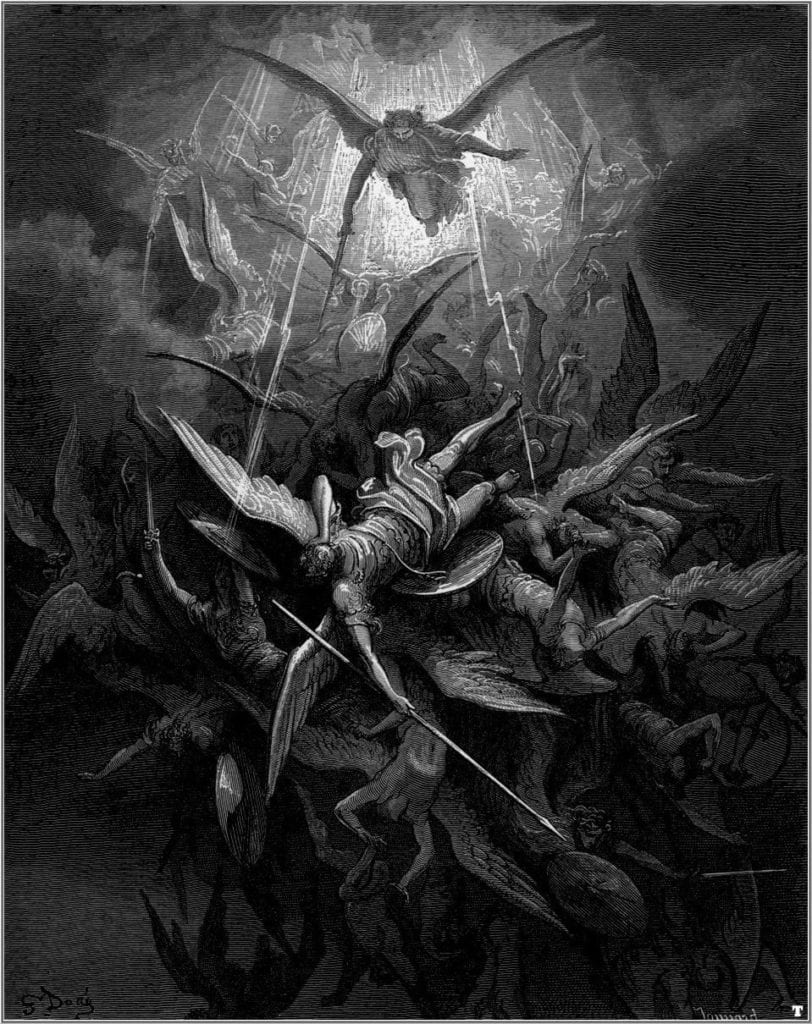
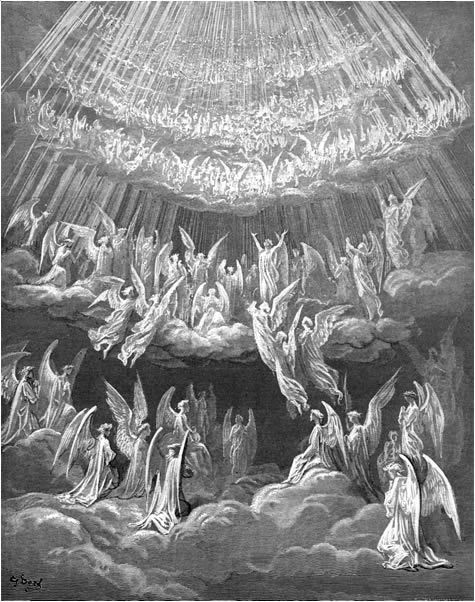
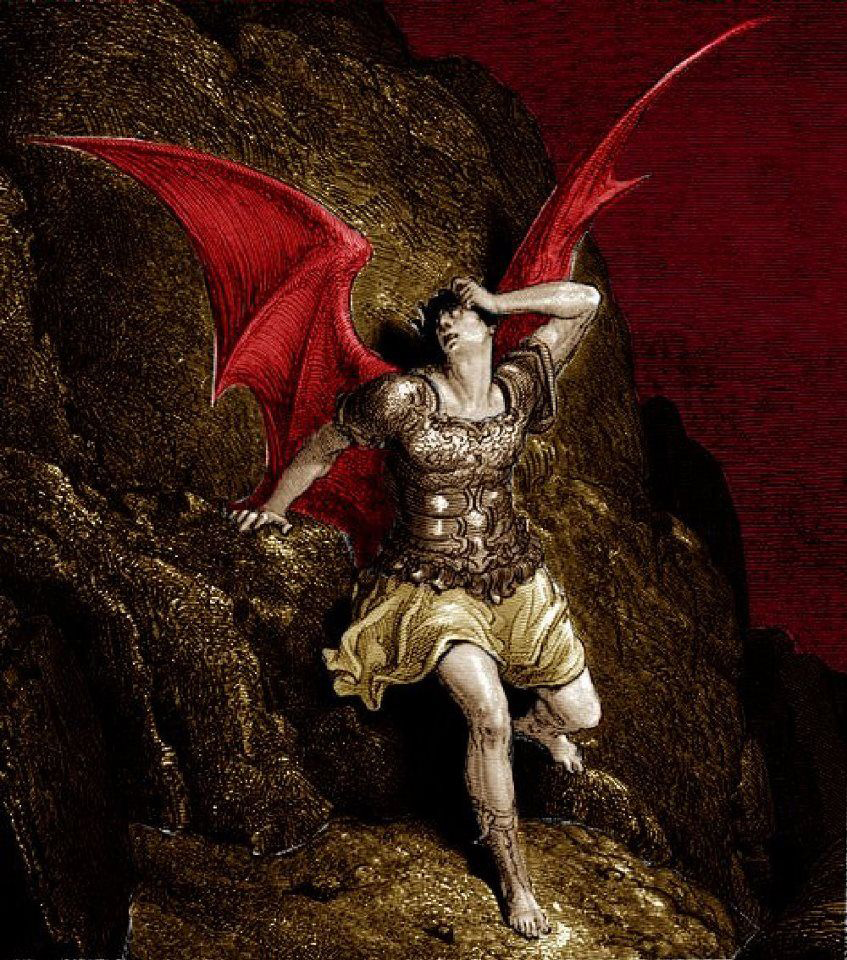
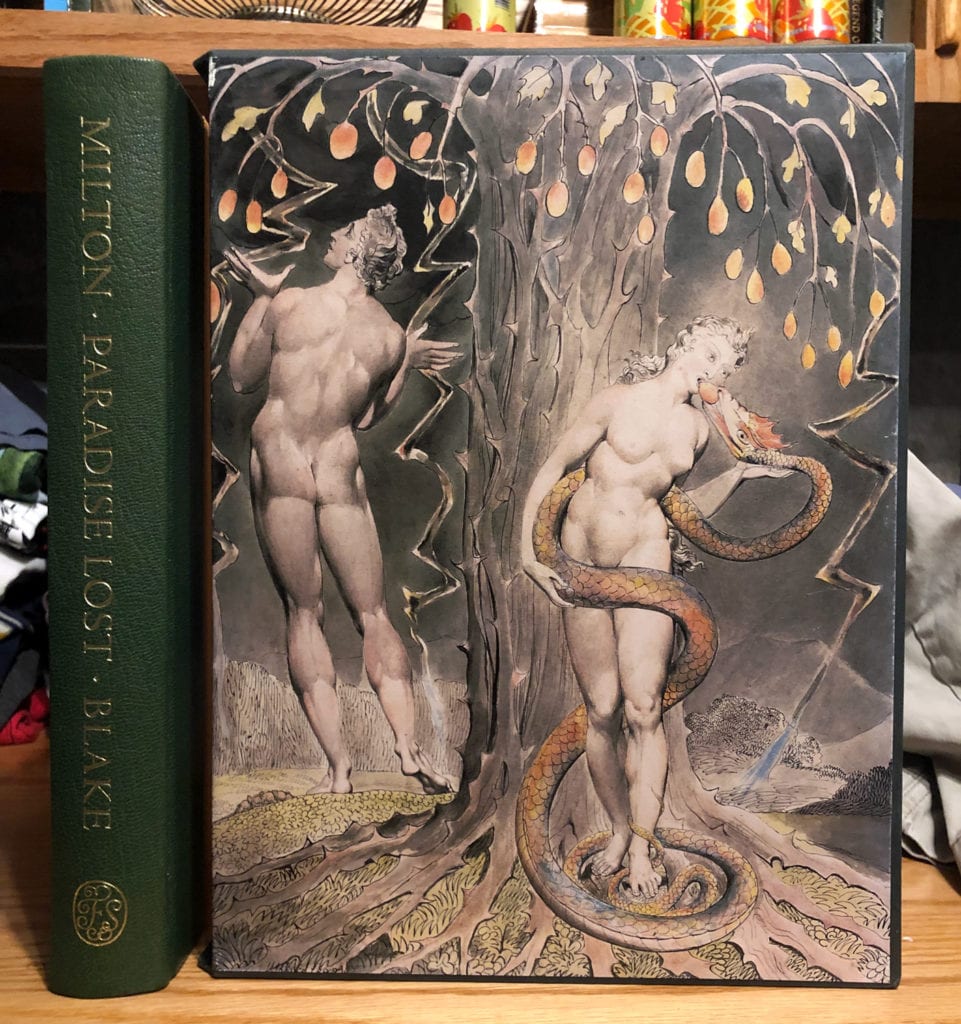
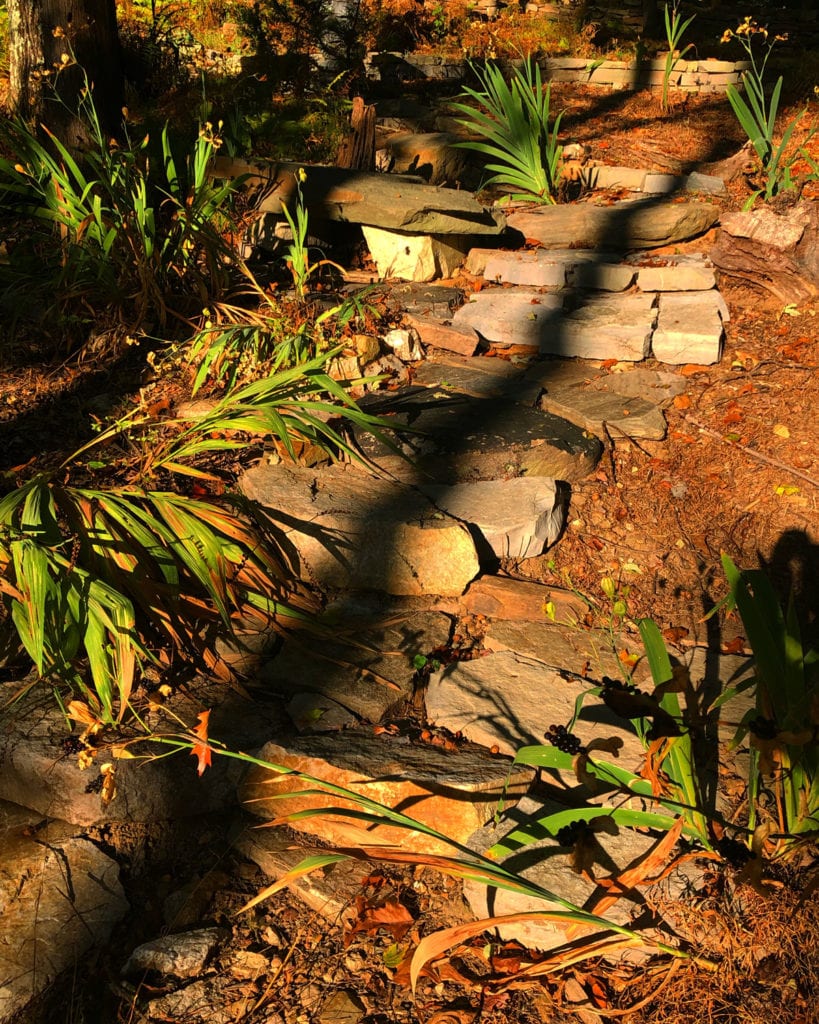
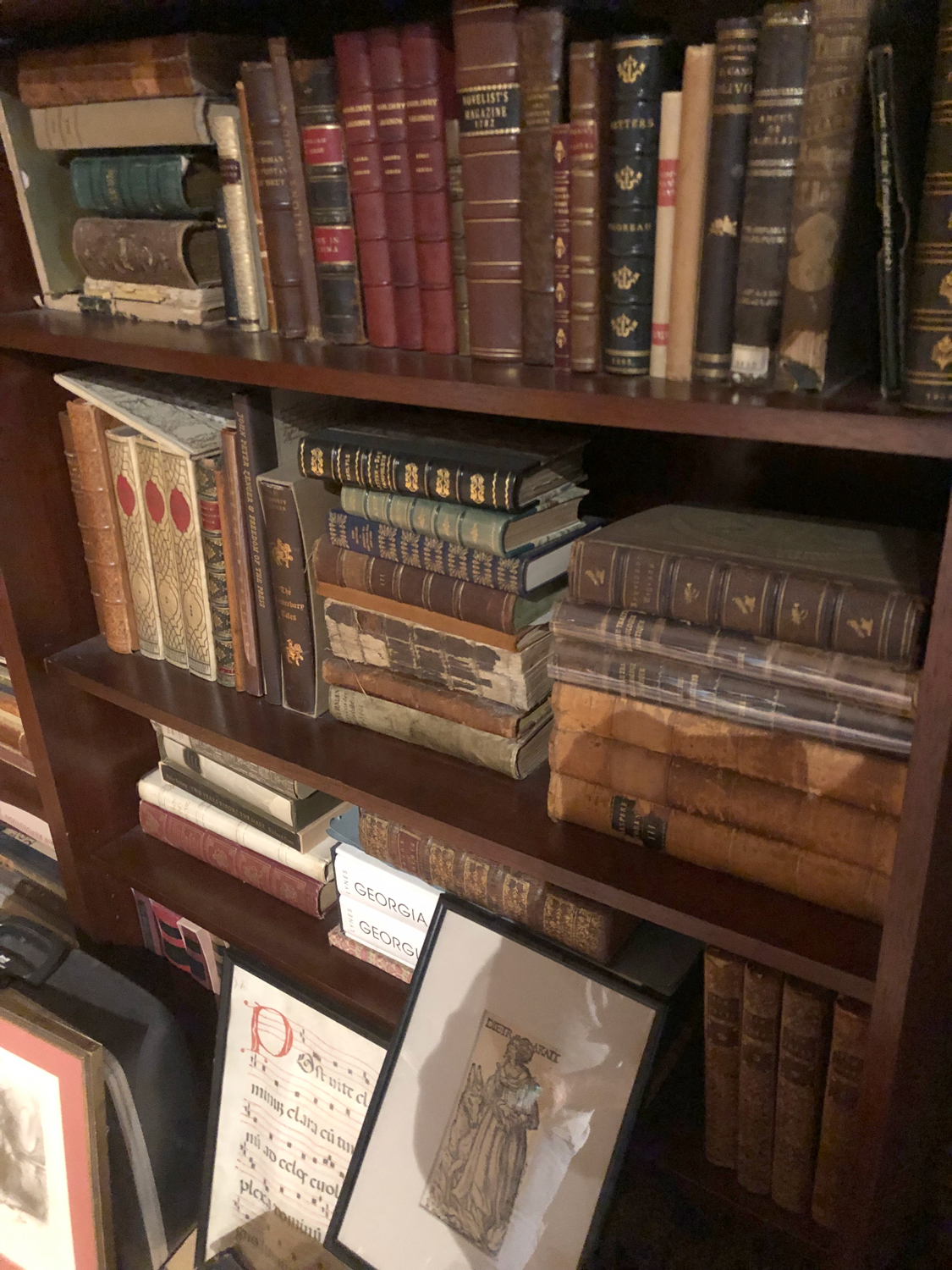
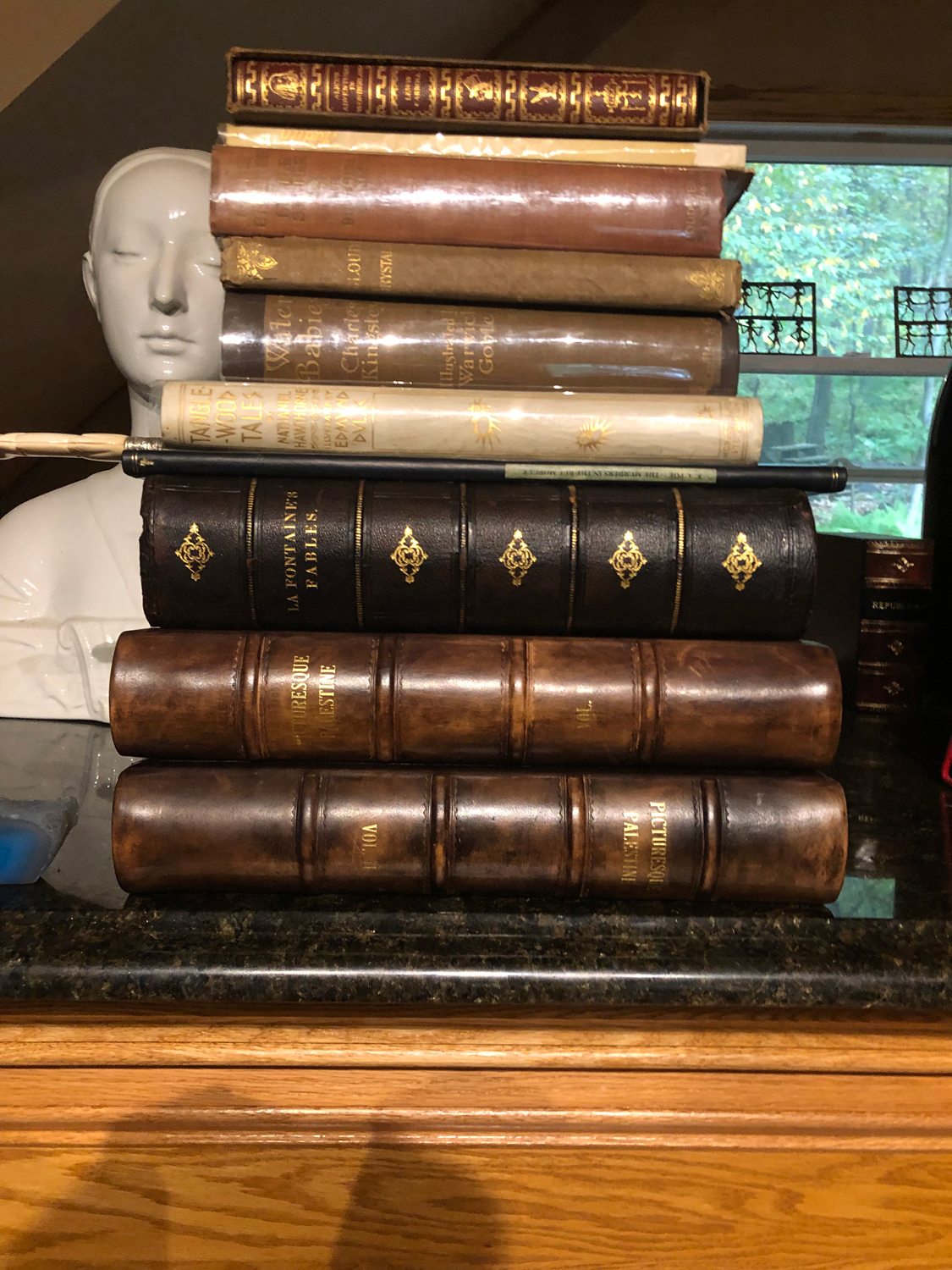
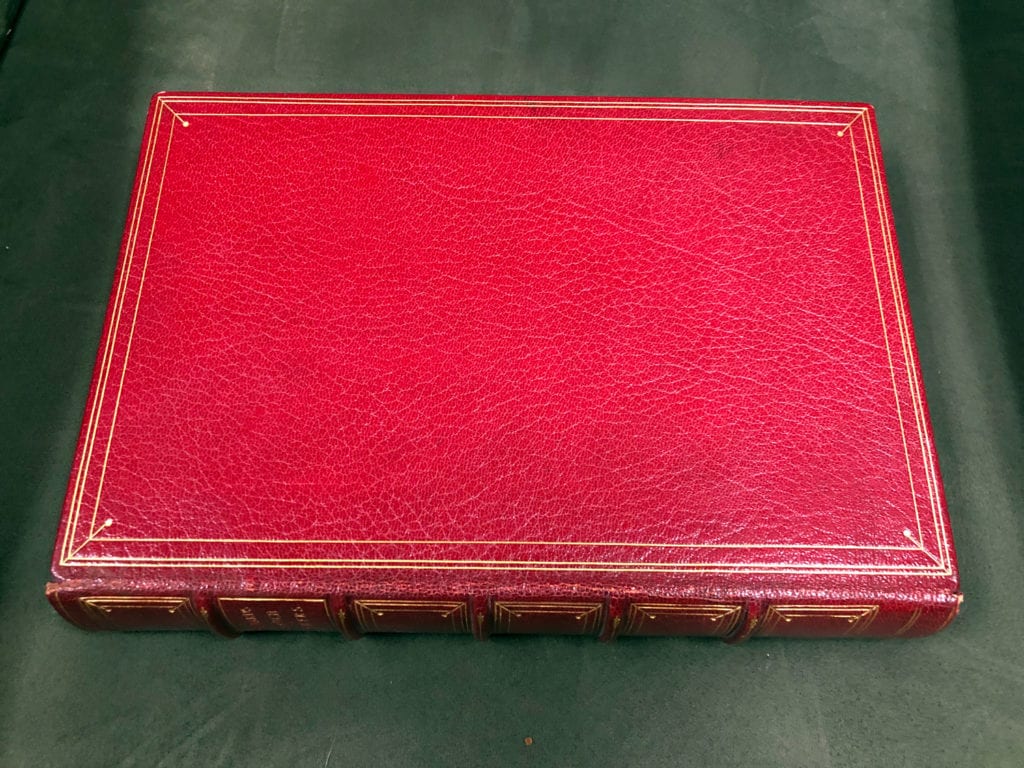
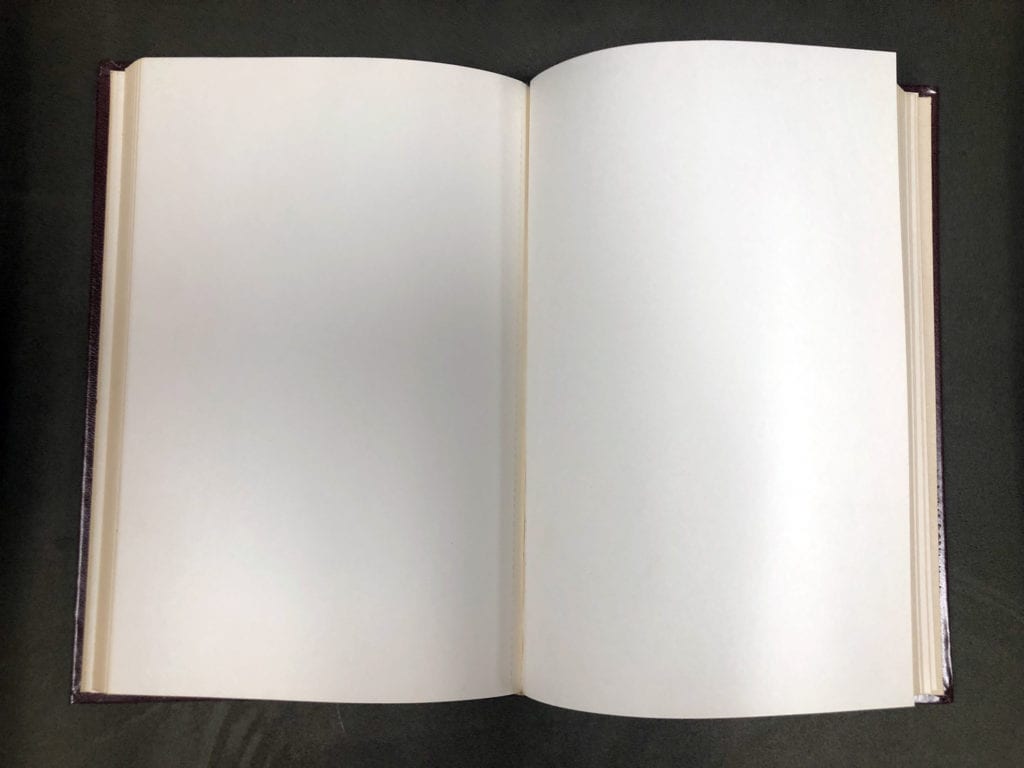
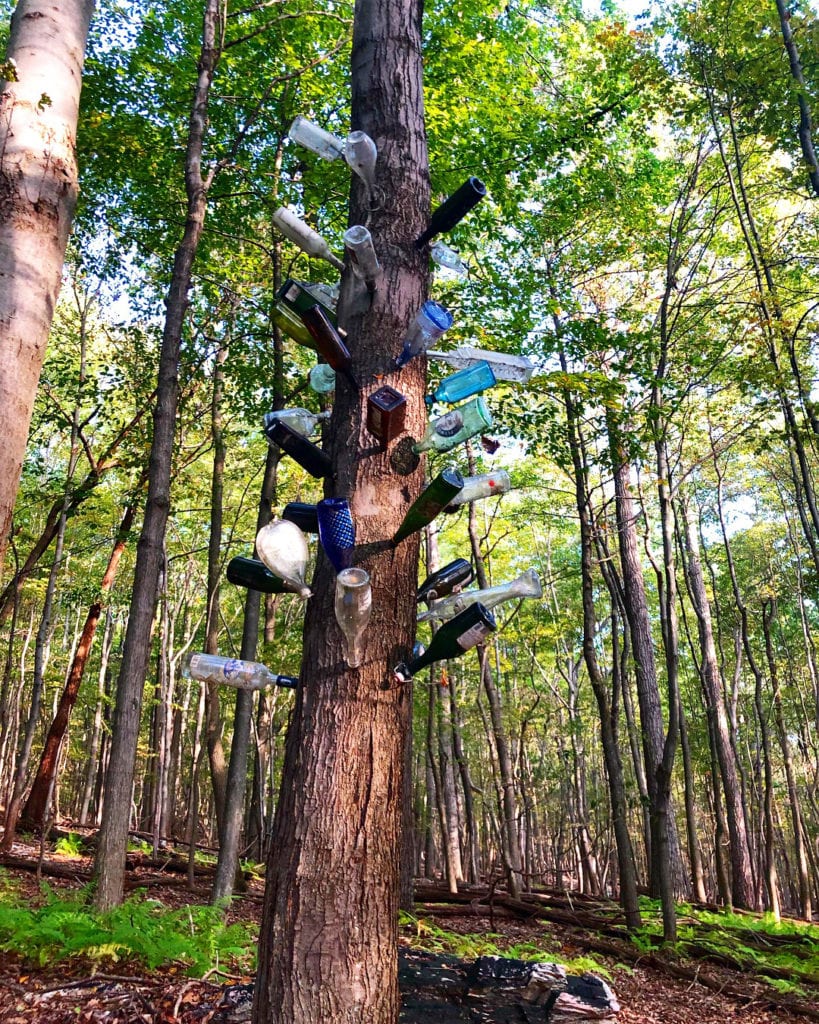
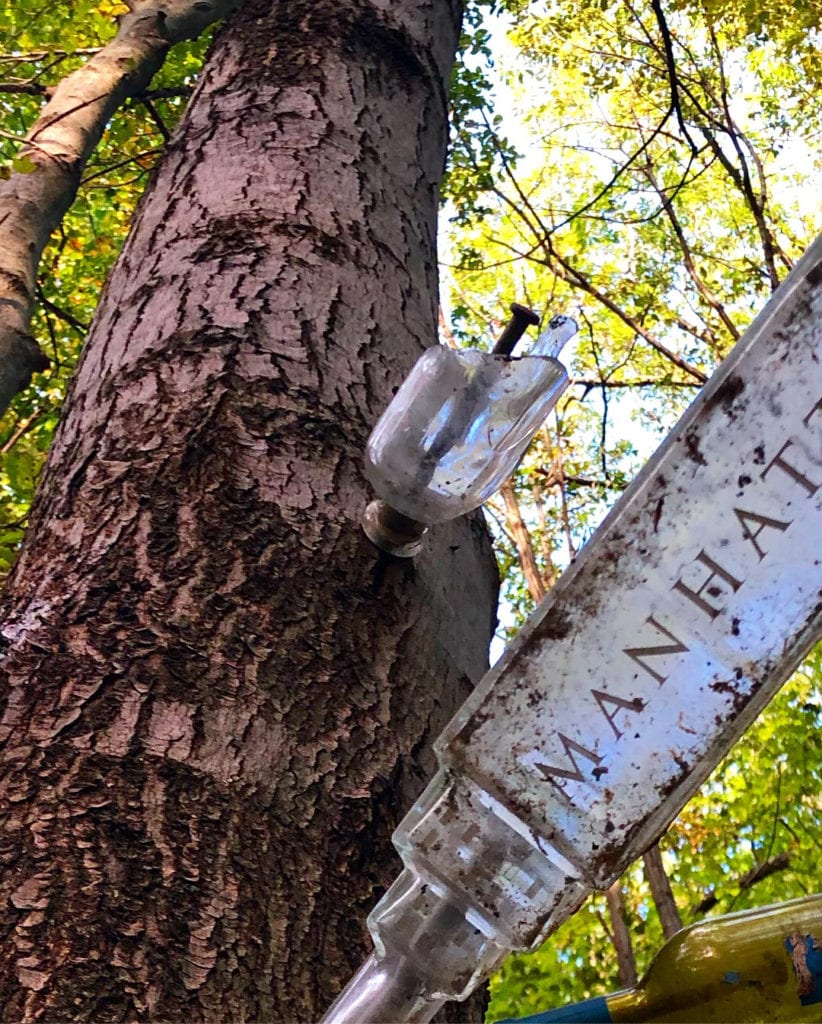
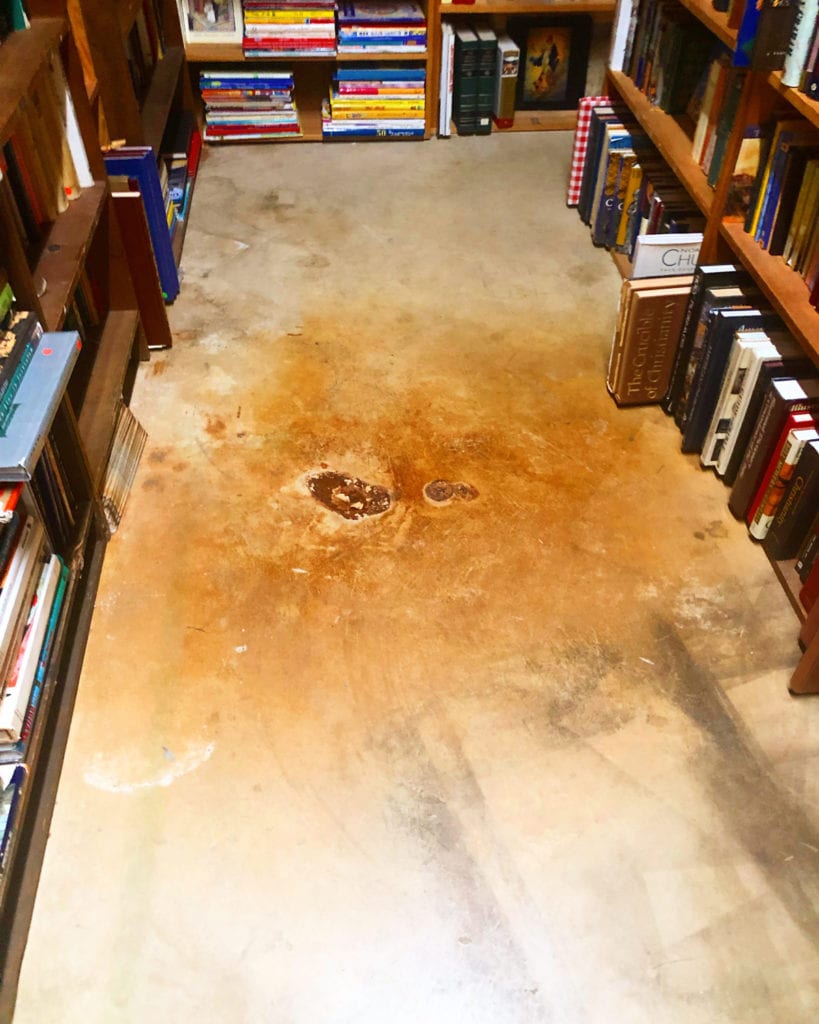
enjoying this bookish tale. thank you for posting it.
Thank you for reading and commenting David.
It helps a lot!
Best
Chuck
Holy Mudhead, Mackerel!
Doesn’t Bottles Count?